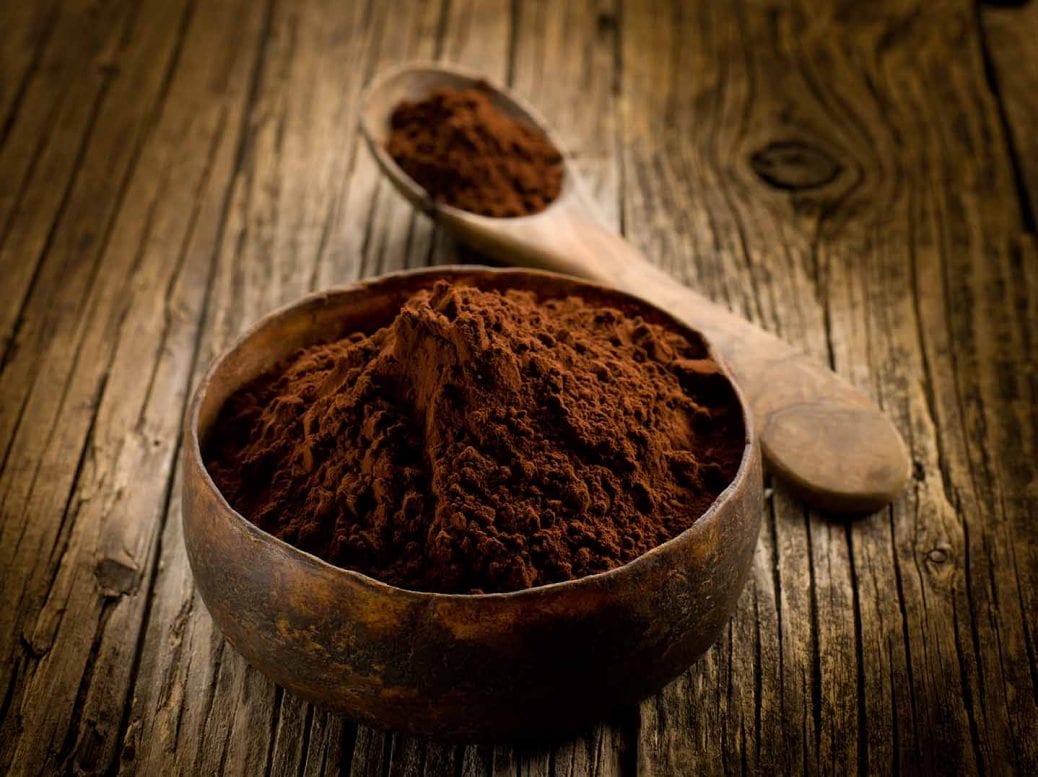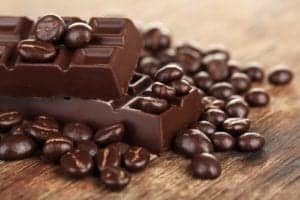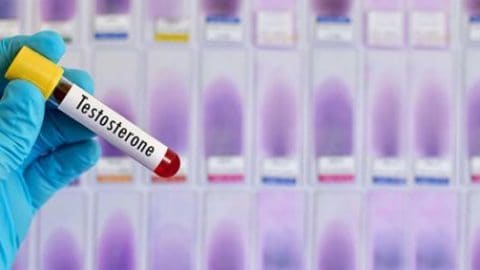Over the years I have kept close track of the studies on the various benefits of cocoa, the main ingredient in dark chocolate, and those benefits are extensive. Of course the magic in dark chocolate is the cocoa content, and cocoa is loaded with health promoting compounds, which I cover in more depth in the AlphaJoe/Bomb Proof Coffee write up, which covers the science, etc. One study found synergistic effects of combing cocoa and coffee, which is additional support/confirmation for my Bomb Proof Coffee (BPC)/AlphaJoe recipe. Back to dark chocolate!
A Refresher On Cocoa:
For those not aware of some of the benefits of cocoa, here’s a brief synopsis from linked write up above:
Cocoa (the main ingredients in chocolate), is rich in various polyphenols (including flavonoids/flavanols) and other bio active compounds such as amines, alkaloids, tyramine, magnesium, procyanidins, phenylethylamine, and N-acylethanolamines. Cocoa has been shown to reduce blood pressure, improve insulin resistance and improved endothelial function. A meta analysis found that the highest levels of chocolate consumption were associated with a 37% reduction in cardiovascular disease, and a 29% reduction in stroke compared with the lowest level of intake, an that’s despite the sugar and fat content of chocolate; reduced insulin resistance and reduced serum insulin levels were associated with the chocolate consumption. There are various studies that also suggest direct cognitive benefit of cocoa ingestion as well as neruo protection. The flavanol epicatechin is believed to be the main source of benefit, but there’s a wide range of compounds in cocoa and it’s highly likely there’s synergism between epicatechin and other flavanols as well as other compounds found in cocoa, many of which are still being elucidated.
One study just out (1) found ingesting dark chocolate improved several cognitive tests, such as “…verbal memory performance for several outcome measures of the Rey Auditory Verbal Learning Test.” The authors suggest one possible mechanism may be improved increased cerebral blood flow via cocoa flavonoids: “…cocoa flavonoids can acutely improve cognitive function in humans, possibly via mechanisms such as increased cerebral blood flow.”
There’s evidence suggesting cocoa may achieve that by improved Nitric Oxide (NO) production but the mechanisms have yet to be fully elucidated. In this simple yet elegant study they fed one group 35g of white chocolate and another the same amount of dark chocolate (70% cocoa content) two hours before the testing, and the group ingesting the dark chocolate and found they scored better on those tests, concluding “These findings lend support to the notion that everyday available portions of dark chocolate can confer benefits to the brain in healthy consumers.” For those wish to dive into the details, the full study is linked below.
Another study (2) found improved oxygenation and cognition in healthy adults likely via likely nitric oxide signalling leading to improved blood flow. Although a small study, the effects were very compelling; ingestion of cocoa increased brain oxygenation, which was associated with better performance on a challenging cognitive task in of healthy adult men.
So what about athletic endeavors? High intensity exercise will increase free radical production and oxidative stress, and when oxidant/antioxidant status is left unchecked, there’s a possible increased risk of injury to the muscles and other negatives – e.g., immune suppression, increased inflammation, etc – all best avoided. A recent study (3) found that dark chocolate (85% cocoa), positively modulated the oxidative stress in elite level football athletes. Below is the abstract with a link to the full paper. While this study did not look at endpoints such as performance, the study found “…a significant reduction in muscle damage markers” in the athletes getting the dark chocolate and “These results indicate that polyphenol-rich nutrient supplementation by means of dark chocolate positively modulates redox status and reduced exercise-induced muscular injury biomarkers in elite football athletes.”
While I’d like to see if those effects translates into improved performance, reduced rates of injury and so forth, the fact remains that cocoa continues to come up win on all fronts. Some people will drink a mug of AlphaJoe/BPC as their pre workout drink, while others – yours truly included – prefer it in the morning. I can also be found eating a dark chocolate bar a few times a week while watching Simpson’s reruns, but I digress… 😉
This recent study –Effect of chocolate on older patients with cancer in palliative care: a randomised controlled study – experienced beneficial effects from the ingestion of both white and dark chocolate, and the effects were actually different between groups. Why that is remains unclear.
Finally, a new study – “Consumption of 85% cocoa dark chocolate improves mood in association with gut microbial changes in healthy adults: a randomized controlled trial” – found 85% cocoa chocolate improved mood states using the Positive and Negative Affect Schedule (PANAS). However, what was most interesting was they found the mechanism may be do to an improvement in gut microbiota. There’s now a lot of emerging research examining what’s called the gut-brain axis, and how the gut and the microbes there in directly impact the brain. This study found the ingestion of the dark chocolate increased the microbiota diversity and concluded,
Abstract
Cocoa flavanols protect humans against vascular disease, as evidenced by improvements in peripheral endothelial function, likely through nitric oxide signalling. Emerging evidence also suggests that flavanol-rich diets protect against cognitive aging, but mechanisms remain elusive. In a randomized double-blind within-subject acute study in healthy young adults, we link these two lines of research by showing, for the first time, that flavanol intake leads to faster and greater brain oxygenation responses to hypercapnia, as well as higher performance only when cognitive demand is high. Individual difference analyses further show that participants who benefit from flavanols intake during hypercapnia are also those who do so in the cognitive challenge. These data support the hypothesis that similar vascular mechanisms underlie both the peripheral and cerebral effects of flavanols. They further show the importance of studies combining physiological and graded cognitive challenges in young adults to investigate the actions of dietary flavanols on brain function.
(3) Dark Chocolate Intake Positively Modulates Redox Status and Markers of Muscular Damage in Elite Football Athletes: A Randomized
Controlled Study
Oxidative Medicine and Cellular Longevity
Volume 2018, Article ID 4061901, 10 pages
Intensive physical exercise may cause increase oxidative stress and muscular injury in elite football athletes. The aim of this study was to exploit the effect of cocoa polyphenols on oxidative stress and muscular injuries induced by intensive physical exercise in elite football players.
Oxidant/antioxidant status and markers of muscle damage were evaluated in 24 elite football players and 15 controls. Furthermore, the 24 elite football players were randomly assigned to either a dark chocolate (>85% cocoa) intake () or a control group () for 30 days in a randomized controlled trial. Oxidative stress, antioxidant status, and muscle damage were assessed at baseline and after 30 days of chocolate intake. Compared to controls, elite football players showed lower antioxidant power and higher oxidative stress paralleled by an increase in muscle damage markers. After 30 days of dark chocolate intake, an increased antioxidant power was found in elite athletes assuming dark chocolate.
Moreover, a significant reduction in muscle damage markers (CK and LDH, ) was observed. In the control group, no changes were observed with the exception of an increase of sNox2-dp, H2O2, and myoglobin. A simple linear regression analysis showed that sNox2-dp was associated with a significant increase in muscle damage biomarker release (). An in vitro study also confirmed that polyphenol extracts significantly decreased oxidative stress in murine myoblast cell line C2C12-derived. These results indicate that polyphenol-rich nutrient supplementation by means of dark chocolate positively modulates redox status and reduced exercise-induced muscular injury biomarkers in elite football athletes.
Will Brink is the owner of the Brinkzone Blog. Will has over 30 years experience as a respected author, columnist and consultant, to the supplement, fitness, bodybuilding, and weight loss industry and has been extensively published. Will graduated from Harvard University with a concentration in the natural sciences, and is a consultant to major supplement, dairy, and pharmaceutical companies.
His often ground breaking articles can be found in publications such as Lets Live, Muscle Media 2000, MuscleMag International, The Life Extension Magazine, Muscle n Fitness, Inside Karate, Exercise For Men Only, Body International, Power, Oxygen, Penthouse, Women’s World and The Townsend Letter For Doctors.
He’s also been published in peer reviewed journals.
Will is the author of the popular e-books, both accompanied by private members forum access , Bodybuilding Revealed & Fat Loss Revealed.
You can also buy Will’s other books on Amazon, Apple iBook, and Barnes and Noble.









I love dark chocolate. I have a bag of 86% and 92% Ghirardelli squares on the table next to the couch. Two pieces make a great addition to the Alpha Joe I use in my morning coffee!